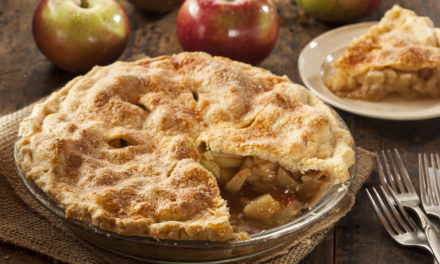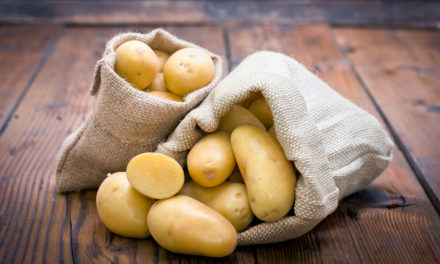“They got me, Charlie! They got me!” That’s how I felt when I realized it was a sneak attack by an invisible enemy!
See those white spots on these chives? They are not from any fungus or pest. It is the result of overspray from either the crop-dusting plane or the chemical spray rigs that decided to treat the fields on both sides of my homestead on a windy day. The farmer to my east who just quit farming would wait until the evening calm and spray at night rather than risk the fine mist of chemicals floating over to my home. The ground is rented now to a modern farmer who sees nothing wrong with massive amount of toxic chemicals to prevent weeds in his corn.

I could not figure out what could possibly cause these spots on my dark purple petunias until I started to notice dead flowers and spotted weeds. For an organic gardener it was my worst nightmare.

I’ve spent seven years getting this asparagus patch growing productively. Look at the devastation caused by overspray. Instead of healthy fronds, the chemical, I am guessing a broad spectrum weed killer, was taking its poison down to the roots of my asparagus. The only solution was to cut off all the stalks to prevent further infiltration and the death of the entire patch. I was heartbroken. The patch might come back but it may take it years to recover.
I am not mad with the farmers or the pilot. Spraying chemicals is a fact of farm life until Round-Up no longer works or the entire industry takes a turn towards organics. I remember when I spent a summer in the countryside of France. I saw large exotic beetles and rare hummingbirds, insect and wildlife that I had not seen since my youth. The entire country is committed to organics so that the native beneficial bugs and birds can be more effective as pest control, thriving when man-made chemicals are not used.


If you live near a farmer there are steps you can take to protect your gardens and yards.
First, don’t preach and don’t start a campaign to drive the farmers to less toxic measures. It will not work. The only thing to do, in my opinion, is aggressively protect your investment of time and sweat-equity. I am talking about being pro-active whenever possible. As you can see in this photo, the farmer has, over time, crept closer and closer to my blackberries and asparagus beds.
There is nothing to protect them from his nocuous spray. While a still day is more conducive to less garden loss, it is not always possible for farmers to consider your needs when they have hundreds or thousands of acres to plant.

So it’s time to go on the offensive and plant a wind break. As you can see there is no first line of defense to protect my tender plants from the onslaught of overspray. If I was going to stay on this property, the smart tactic would be two-fold. Since I own the acres around my homestead, I would talk to him about moving back and allowing us to mow more of what is now under cultivation. What I have always wanted was to put the ground into either a pasture surrounded by an Osage Orange grove, (we call them hedge rows of hedge-apple tree in Southern IL) or a hay field that requires much less intensive chemical treatments.

Second, I would plant a double row of cedars or evergreens or even hearty variety of Rose of Sharon around the length of the property. That is the minimum requirement for all certified organic homesteads, a natural barrier to help protect from airborne toxic fumes. Evergreens will be available this fall at Buchheit.
Presently, all the asparagus and the flowers in the containers have been cut back. All the chives have been repotted into clean soil and cut back too. Life throws all of us curves now and then, it’s how we handle it that either strengthens or weakens our character. I can choose to forgive and get over this or stay mad. The farmer will never know how upset I was so the only person who loses is me. I choose to forgive and pray for all the farmers’ crops to do well this year. It’s much more productive to forgive and go on, but it is a learned behavior. Be blessed. Anne May






